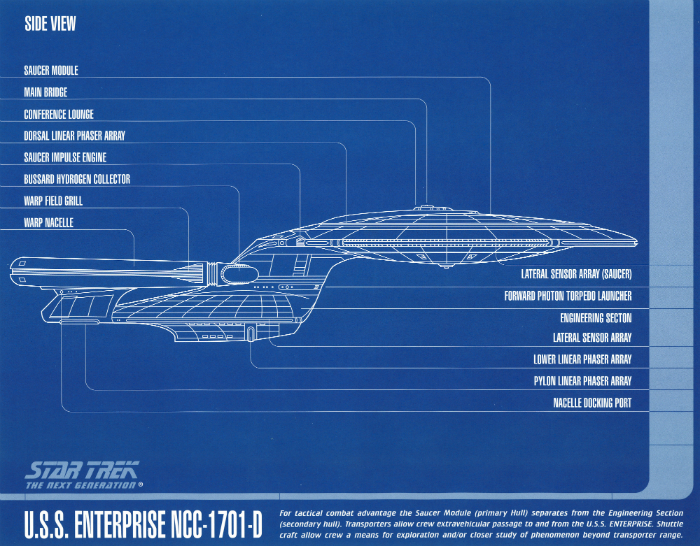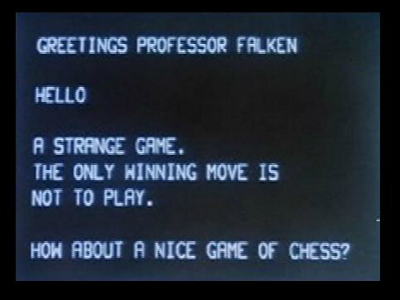Part Three: Science Fiction Fundamentals
In the previous two installments of this discourse (found here and here), I discussed roleplaying game settings which are not actually science fiction, and science fiction games that have been less than successful for a variety of reasons. Today, I discuss why this is, and why fantasy roleplaying games will nearly always outperform their science fiction counterparts. It is an interesting challenge, and one I hope to be able to shed some light into.
First and foremost, I must define what I consider to be an actual science fiction RPG. As I said previously, there are many fantasy games on the market which make use of science fiction elements, but are still ultimately fantasy in nature. What makes them fantasy, and not science fiction, are three key elements.
Progress & Innovation
The principal defining aspect of science fiction is the value of human innovation. While this crops up in certain near-crossover games, such as D& D’s Eberron setting or Shadowrun’s ever improving cyberware, there is a need in the depths of science fiction for humanity to be able to overcome its challenges through new ways of thinking. Science fiction has its eyes fixed on the horizon, trying to see what lies beyond it. Warhammer 40K’s greatest failure in this regard, for instance, lies with the Imperium of humanity, where humans have turned away from the light of science and understanding to where it’s treated as another form of magic, equally as mysterious. There, knowledge is not being advanced; it is, if anything, moving in the opposite direction.
 Sci-fi celebrates human innovation, yet in roleplaying games this can often be more of a challenge than a benefit. RPG systems generally have a very straightforward means of advancement. Characters gain experience, and thus become more knowledgeable, talented and powerful. The value of innovation is second to the idea that simply by overcoming challenges, you will grow more powerful.
Sci-fi celebrates human innovation, yet in roleplaying games this can often be more of a challenge than a benefit. RPG systems generally have a very straightforward means of advancement. Characters gain experience, and thus become more knowledgeable, talented and powerful. The value of innovation is second to the idea that simply by overcoming challenges, you will grow more powerful.
While many games have means by which characters can utilize their knowledge to construct better equipment or choosing more ideal tactics, killing monsters and taking their stuff rarely serves as a good example of this. In fact, in the worst cases, player ingenuity can prove destructive to a game, allowing characters to overcome far superior challenges through simply having the right trick at the right time. The plucky hero thinking fast and saving the day against impossible odds is central to many science fiction narratives, but it is not something that many GMs are comfortable relying upon in all groups.
Moral Relativity
Science fiction needs to eschew blanket morality and investigate genuine social issues of the modern world. In many ways, science fiction is a subversive force, challenging long held ideals and holding up comforting logical fallacies to be examined. A classic example of this is Star Trek. It used the model of science fiction to examine the Civil Rights movement, how to responsibly use power, and how war itself was as destructive to the winner as it was to the loser.

You sure you don’t want to just pick a side?
The more fantasy-laden Star Wars did the opposite, with the mysterious benevolence and malevolence of the two sides to The Force, and its focus on a single person’s journey from being a callow youth to a heroic person.
Science fiction has always pulled apart social constructs and asked how something could be done better. It rejects absolutisms more than embracing them, with no clearer instance given than by the actions seen in Babylon 5. When confronted with a choice between two diametrically opposed monolithic alien forces, the hero of Babylon 5 tells them both to go away and let the younger races make their own choices and mistakes.
By refusing to truly buy into the colossal moral narrative of Good against Evil or Order against Chaos, sci-fi RPGs lose one of the primary storytelling devices available to escapist gaming. Effective science fiction often only uses the idea or moral absolutes either as a deconstruction or as a battle against extinction. In the deconstruction of the battle of good against evil, both sides are generally shown to be pushing an ideology entirely of their own. It’s revealed that good is not actually that good and lies about just how evil the other side is. The only logical course once this is discovered is to reject both sides, and choose a third option.
 This requires players who are willing to strike against most narrative constructs, and have the maturity to know when and how to do so. It involves greater risk, and it might require more genuine thought than some may be comfortable with.
This requires players who are willing to strike against most narrative constructs, and have the maturity to know when and how to do so. It involves greater risk, and it might require more genuine thought than some may be comfortable with.
The battle against extinction is the only form that this narrative survives intact in science fiction, but that still limits the stakes of the story to All or Nothing. Part of the appeal of the escapism in roleplaying is that the lines are clearly drawn, and you know you are on the right side. Ambiguity has always made people uncomfortable, and science fiction relies on this ambiguity as a staple.
A Focus on Reason
Science fiction takes pride in the idea of the rational, reasonable explanation for things happening. Most sci-fi storytelling relies heavily on cause and effect, with little external influences shaping things. The universe is a sane – if terrible – place to live. Nothing is entirely outside of the system of logic. This conflicts strongly with many fantasy tropes. There are no gods in science fiction, though there may be god-like beings. Still, their status is more a measure of power than any inherent authority over the way things should be.

I’m not a god. I just play one on TV…
Oh, and some people think I’m a god.
Everything in science fiction happens for a reason, and there are rules to the universe which can be understood. CthulhuTech’s magic is merely quantum manipulation of mathematics, and understanding it has allowed it to be harnessed as a power source for humanity. Asyncs of Eclipse Phase are capable of psychic powers due to an alien computer virus capable of infecting human minds, causing quantum entanglement of particles.
More fantastic settings rely on magic being unexplainable, unpredictable, and prone to the whim of random beings. In science fiction, the questions of “How?” and “Why?” are just as necessary to be answered as “What is happening?”.
Needing to provide explanations in a reasonable, thought out manner can be challenging for many Game Masters. A rational universe, where all the pieces fit together, and things only happen because of previous events can seem dull and uninteresting from the top-down perspective of a storyteller.
Take, for instance, the idea of mystery. It’s a key aspect to many games that wish to focus less on combat and more on social interaction. It can be difficult to keep an atmosphere of mystery available, then, when things have rational explanations. There is the challenge of having the world be too predictable, and too limiting for a player to have fun playing in. The chaos of player agency may seem more in the spirit of fantasy than science fiction. Moreover, when a GM must know the answers to how and why things come about, there is a greater burden of proof on them. For these reasons, the idea of a rational, sane universe, however terrible, may conflict with the sense of fun and unpredictability many players look for in escapist roleplaying.

We must stop the Great Evil with our super ninja powers!
While there are many other aspects to science fiction that separates it from more traditional fantasy, it is these three which are the most troubling from the RPG perspective. Most roleplaying games, especially fantasy ones, focus on a small group of protagonists facing overwhelming odds to earn glory, gold, power, or safety. They may wish to become rich and famous, or to save the world, or to rule the world. In many cases, RPGs serve as a means of wish fulfillment, where personal avatars of the players can see, say, and do things that they never could in real life. The element of escapism is strong in both fantasy and science fiction, as are the stakes. However, it is because of the necessity of these three aspects that science fiction roleplaying games suffer in comparison to their fantasy counterparts.
Players approach roleplaying from any number of directions, but there are a few reasons for staying in the hobby. First is the sense of empowerment and escapism, where they can control a hero who can change the world through their actions. Second is a sense of cooperative narrative, where players have power in shaping the story to be told. Lastly is the ability to immerse yourself in a life that could never be yours and come face to face with decisions and motivations other than the ones you’d typically have. While science fiction can provide for all three of these, its own aspects that make it successful in novels and television require more commitment and more risk to be successful in fantasy. Its escapism is more realistic, its narrative is more logical, and its decisions refuse easy answers.
Still, there are some games that rise to the challenge. In the second to last installment, I will discuss Eclipse Phase, the most successful science fiction RPG of the last decade. What’s more, to round this series out we’ll also look at some existing intellectual properties that would lend themselves to having a successful RPG. Until then, may your quests progress ever forward.
David Gordon is a regular contributor to the site. A storyteller by trade and avowed tabletop veteran, he can be reached at dave@cardboardrepublic.com.
You can discuss this article and more on our social media!
Photo Credits: Star Trek Blueprints by Cygnus-X1; Babylon 5 and Stargate Images by Wikia; Wargames Image by MGM Studios; South Park Ninjas by South Park Studios.
